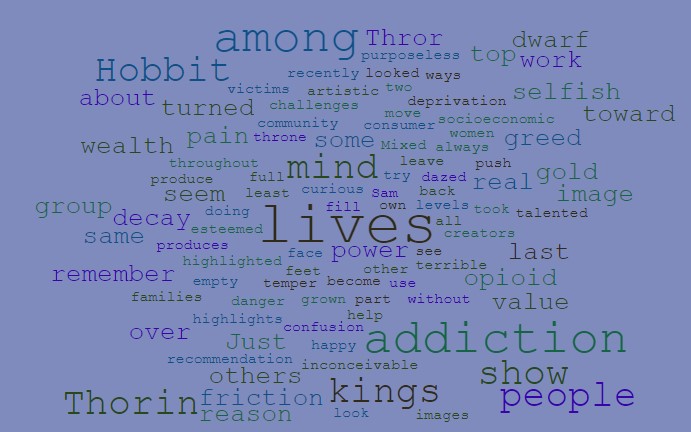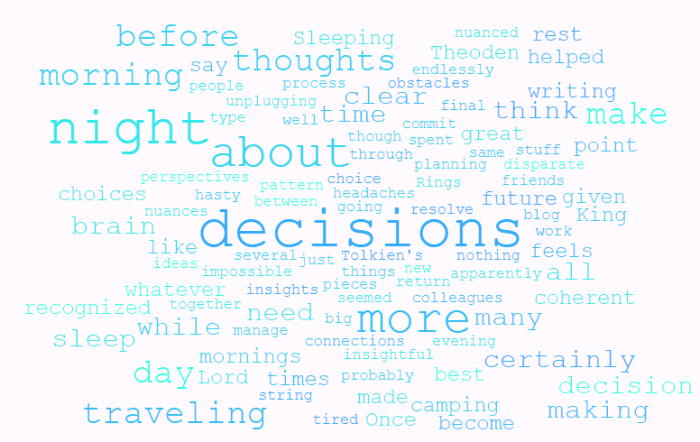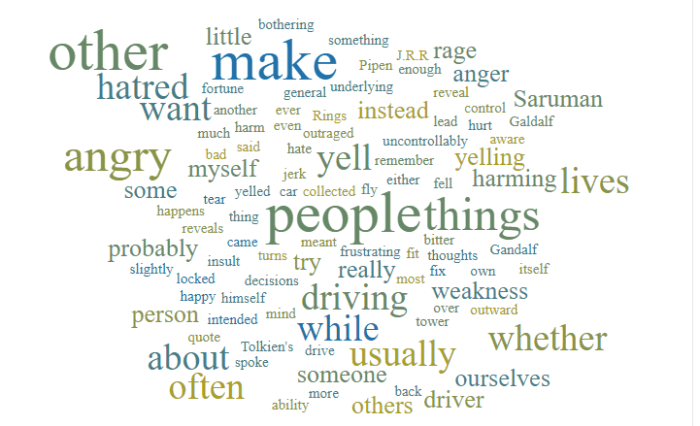I’ve recently watched The Hobbit trilogy, and images of Tolkien’s dwarf kings consumed with greed and gold have stuck with me. For whatever reason, the image of King Thror spinning around in a state of dazed confusion among his treasure, and the image of Thorin becoming corrupted by the same gold bounty have replayed through my mind. Tolkien and the artistic creators of The Hobbit are using the dwarf kings to show the negatives of greed, of lust for power, and the danger in pursuing wealth over people and relationships. They also show what can go wrong in the mind when we have everything.
The Hobbit came back to mind as I looked over quotes I highlighted and notes I took in Dreamland by Sam Quinones. My last two posts were about our efforts to avoid pain, suffering, and negativity and about how we try to fill our lives with consumer products that promise to make us happy. Mixed in with those ideas, Quinones adds, “man’s decay has always begun as soon as he has it all, and is free of friction, pain, and the deprivation that temper his behavior.”
Thror and Thorin show us what Quinones means. When the kings were at the top, when there were no constraints in their power or wealth, they used other people for their own gain. Their minds turned to selfish impulses, and turned away from doing what was right for the good of their people. When they reached the top, they atrophied, with nothing to work toward but the preservation of their own grandeur.
A curious phenomenon that Quinones highlights throughout his book is how opioid addiction cuts across all socioeconomic status levels. The sons and daughters of esteemed judges and doctors just as well as men and women who have grown up in poverty all seem to be victims of opioid addiction. For some reason we expect addiction among the second group, but find it inconceivable that the first group might face the same challenges. In some ways, the quote above from Quinones answers part of why we see addiction among middle class families and among the children of talented professionals.
When we have no limits in what we do, when our lives are tailored, curated, but isolated, we begin to lack purpose. Our lives might look full from the outside, but be void on the inside. When we seem to have it all, the value of our lives can decay, and without friction under our feet to push us forward, we can’t move anywhere. Just as our excesses produce terrible externalities, our having it all, or at least thinking we can buy it all, produces a feeling of purposeless that can lead to drug use to blunt the meaninglessness of self-indulgence.
My recommendation is to remember Thorin and his grandfather. To remember that our selfish desires can become our own downfalls, and to turn instead toward community building and relationships with others. To strive for our own greatness will leave us on an empty throne, but to work with others for shared goals will help us develop real structures in our lives that last and have real value.




